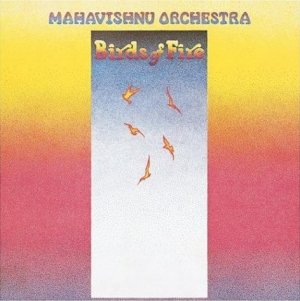
| Artist: | Mahavishnu Orchestra |
| Title: | Birds of Fire |
| Released: | 1973 |
| Label: | CBS Records |
| Time: | 40:14 |
| Producer(s): | The Mahavishnu Orchestra |
| Appears with: | John McLaughlin, Jan Hammer, Billy Cobham, Jean-Luc Ponty, Bill Evans |
| Category: | Jazz |
| Rating: | ***....... (3/10) |
| Media type: | CD |
| Purchase date: | 1997 |
| Price in €: | 8,99 |
| Web address: |